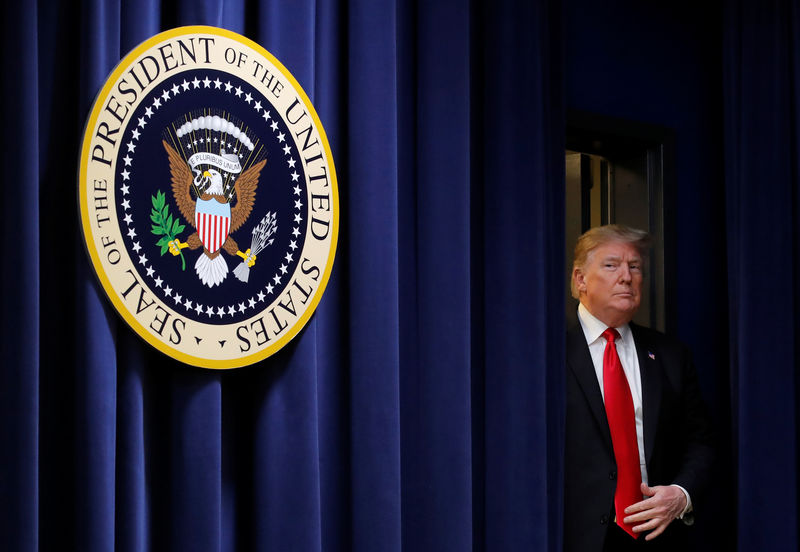By Humeyra Pamuk
WASHINGTON (Reuters) - The Trump administration said on Thursday it aims to tighten food stamp restrictions for some able-bodied Americans through a proposed rule change it says would save billions of dollars, after efforts to do so through Congress failed.
The proposal drew criticism from Democratic lawmakers who argue food stamps provide a crucial safety net to the poor. The Supplemental Nutrition Assistance Program, or SNAP, provides free food to some 40 million Americans, or about 12 percent of the total U.S. population.
President Donald Trump's administration has argued that many Americans now using the program do not need it given the strong economy and low unemployment, and should be removed as a way to save taxpayers as much as $15 billion.
But a Trump-backed effort to pass new restrictions through the Farm Bill was blocked by Congress, following a months-long, bitter and partisan debate. Trump signed the final Farm Bill - minus the food stamp cuts - into law on Thursday.
At the signing ceremony, Trump praised the U.S. Department of Agriculture's proposed rule change on SNAP, saying in the end it would make "a lot of people very happy."
"Millions of able-bodied working-age adults continue to collect food stamps without working or even looking for work," Trump said. "Our goal is to move these Americans from dependence to independence and into a good-paying job and rewarding career."
Under the current SNAP program, qualifying able-bodied adults without dependants (ABAWDs) can only get food stamps for three months over three years, a rule called the time limit that is intended to encourage people to find work. But states can circumvent the time limit and extend the benefits for ABAWDs by using waivers if they see fit.
The USDA said the department was planning to end statewide waivers unless a state qualifies for extended unemployment benefits due to bad economic conditions, and would limit waivers in larger geographic areas deemed to have sufficient available jobs. Currently, 29 states administer partial waivers while seven states offer statewide waivers.
POLITICIZING WAIVERS
In a briefing late on Wednesday, Agriculture Secretary Sonny Perdue said 75 percent of the 3.8 million able-bodied individuals receiving food stamps were not working in 2016, the latest year for which the USDA has the data.
"This is unacceptable to most Americans and belies common sense, particularly when employment opportunities are plentiful as they currently are," he said. "The nation's economy is booming and unemployment is at (its) lowest ... since 1969."
The U.S. economy grew at a 3.5 percent annualized rate in the third quarter, and is on track to hit Trump's 3 percent target this year. The U.S. unemployment rate was unchanged at near a 49-year low of 3.7 percent.
The USDA also said it was strengthening criteria for approval of waivers, for example, by limiting their duration to ensure they do not outlast poor economic conditions.
James Weill, president of nonprofit advocacy group Food Research and Action Center, said the waivers used by states were crucial to protecting food assistance for people who are seeking but unable to find sufficient hours of work.
"The Trump administration now proposes to politicize the process at the state level, reduce the ability of states to follow Congress' intent, and arbitrarily narrow states' ability to waive the time limit in areas with insufficient jobs," he said in a statement.

Democratic Senator Debbie Stabenow of Michigan also criticized the proposal: "Congress writes laws and the administration is required to write rules based on the law, not the other way around. ... Administrative changes should not be driven by ideology," she said in a statement.